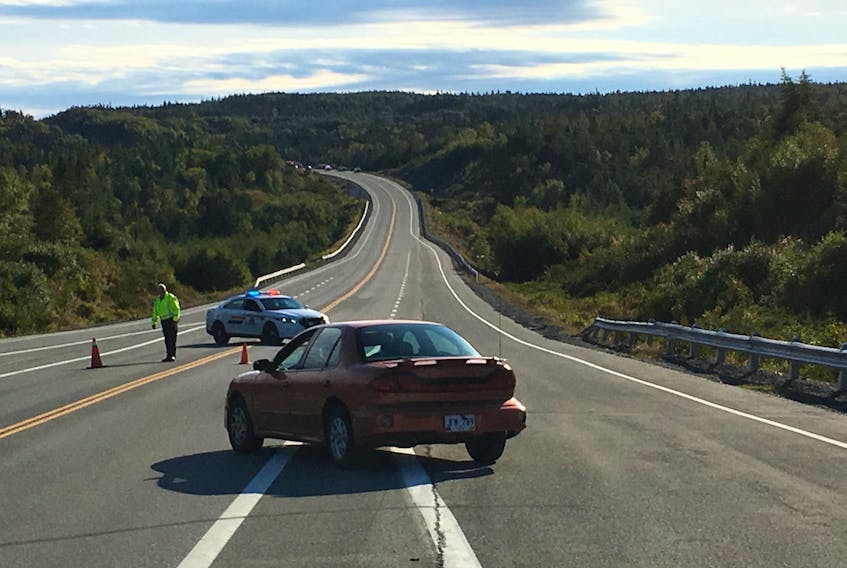Amidst the nationwide grieving over the tragic death of nearly half the roster of the Humboldt Broncos Junior A hockey team in a bus-truck collision in Saskatchewan one week ago, an extremely uncomfortable truth must be confronted: as a society, we don’t really take highway safety seriously.

To venture onto a Canadian highway is to automatically increase your probability of dying, but the dangers inherent to highway travel are seemingly accepted as unchangeable.
There are, of course, various safe-driving campaigns and efforts to curtail drunk driving, but the carnage continues unabated, day after day, year after year, until the nation is periodically shocked by a heartbreaking disaster such as occurred in Saskatchewan.
The RCMP hasn’t specified a cause of the collision that killed 16 people on the Humboldt Broncos’ bus. There has been plenty of speculation on social media about what most people refer to as the “bus crash.” It took a few days for the media to address the issue of why the tragedy happened. Since the RCMP weren’t saying anything, reporters turned to retired police officers and others who dealt with investigating road fatalities.
One expert said it could take months for a mechanical analysis to be done on the two vehicles.
With all due respect to his expertise, mechanical failure is highly unlikely to have been the cause. Among the numerous reports of traffic collisions, police often cite speed as a factor, or alcohol as a factor, or road conditions as a factor. Almost never do they cite mechanical failure as a factor.
Any experienced driver can read descriptions of that intersection near Tisdale, Sask., and reasonably surmise the most likely cause of last week’s deadly collision was that the driver of the tractor-trailer didn’t stop at the stop sign.
Less likely, the truck driver did stop, but as he proceeded through the intersection, the collision occurred because the bus was speeding and couldn’t stop in time.
The second scenario is less likely because coaches and team officials would be aware of liability and insurance issues that could arise from allowing the bus driver to exceed the speed limit. In fact, if the investigation determines the bus was speeding, watch for the launch of lawsuits.
Mourning a tragedy need not preclude asking why it happened. And yet, to ask why a tragedy happened is often deemed disrespectful to victims and their families.
It is the opposite. Ignoring the cause or not seeking an explanation is disrespectful. To despair at someone’s loss is to also want to know why they were lost.
Police generally avoid this dilemma by saying they can’t, and won’t, speculate about causes. Regarding last week’s tragedy in Saskatchewan, they have simply avoided the subject altogether.
Mourning a tragedy need not preclude asking why it happened. And yet, to ask why a tragedy happened is often deemed disrespectful to victims and their families.
This is the wrong approach. Too many people seem to think traffic deaths are merely unfortunate occurrences, without cause or explanation.
Police should take the lead in convincing people that there is no such thing as a “car accident.” The word “accident” implies something happened merely because of fate or bad luck, or that it was unforeseeable.
But every collision, every road death, has a cause. Most of those causes include blame. Speed is the main culprit. Alcohol is another, and highest in the public’s consciousness. There is also driver inattentiveness (read: cellphones) and blatant disregard for rules of the road (tailgating, running red lights, passing on the right).
By not immediately addressing the question of cause, police unwittingly contribute to the fatalism that reigns regarding road safety, i.e., the belief that “accidents” and deaths are inevitable and unpreventable.
Fatalism is giving up. It is surrendering to an intolerable situation. Plenty of people lament the lawlessness that prevails on Newfoundland’s highways. To say speeders and bad drivers cannot be controlled — caught by the cops and punished by the courts — is unacceptable, and wrong. It could be done if we took highway safety seriously.
Brian Jones is a desk editor at The Telegram. He can be reached at [email protected].









